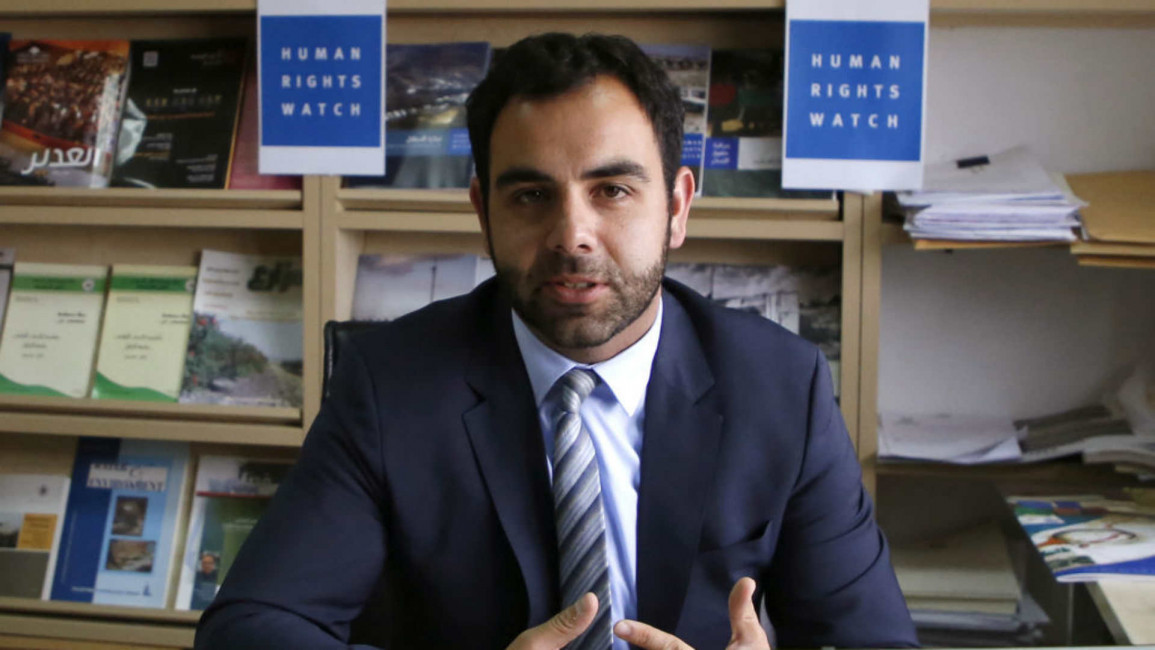Israel 'first democracy to expel' Human Rights Watch staffer: director
US citizen Omar Shakir, the New York-based rights group's director for Israel and the Palestinian territories, is to be deported from Israel on Monday over his alleged support of a boycott of the country.
The expulsion, upheld by the supreme court, would make Shakir the first person to be expelled from the country under a controversial 2017 law allowing the deportation of foreigners who support a boycott of Israel, according to authorities.
HRW denies Shakir supports a boycott of the Jewish state and accuses Israel of seeking to suppress criticism of policies towards Palestinians.
"I cannot think of another democracy that has barred a Human Rights Watch researcher," Roth told AFP in Jerusalem.
Roth said countries including North Korea, Venezuela and Iran have expelled HRW researchers but no functioning democracy had taken such action.
"I think it demonstrates the increasingly constrained nature of Israeli democracy," Roth added.
He said Israel, despite having elections and a free press, tries "as much as it can" to silence efforts "spotlighting the human rights violations at the heart of the oppressive, discriminatory occupation (of Palestinian land).
Twitter Post
|
Shakir has been fighting a lengthy legal campaign against expulsion but earlier this month Israel's supreme court upheld the government's decision to deport him.
Israel accuses him of being a supporter of the banned Boycott, Divestment and Sanctions (BDS) movement, which calls for a broad-ranging boycott of Israel over its treatment of the Palestinians.
Israel sees the movement as a strategic threat and accuses it of anti-Semitism - a claim activists strongly deny.
Comment: Deluded US support for Israeli settlements is a final wakeup call to the EU
Supporters of the nonviolent BDS movement compare it to the economic isolation that helped bring down apartheid South Africa.
"All those who work against Israel must know that we will not let them live or work here," Israeli Interior Minister Aryeh Deri said earlier this month.
The case against Shakir was initially based on statements he made in support of a boycott before taking up his post with HRW.
The government case also highlighted work he has done since joining HRW, including criticising Israeli settlements in the occupied West Bank.
"Neither Human Rights Watch nor I as its representative have ever called for a boycott of Israel," Shakir told AFP.
But he said that the organisation did not restrict free speech, including the right to call for a boycott.
"It is undeniable that boycotts around the world have led to changing unjust systems but Human Rights Watch doesn't take a position on them," he added.
The issue of settlements took the spotlight recently after a move by President Donald Trump and Secretary of State Mike Pompeo to unilaterally declare Israeli settlements as legal under international law.
The policy shift was welcomed by Israel but it puts the US at odds with virtually the whole of the rest of the international community.
"Our position on Israeli settlement policy in the occupied Palestinian territory, including East Jerusalem, is clear and remains unchanged," Britain, France, Germany, Belgium and Poland said in a joint statement.
"All settlement activity is illegal under international law and it erodes the viability of the two-state solution and the prospects for a lasting peace.
"We call on Israel to end all settlement activity in line with its obligations as an occupying power," they added before a Security Council meeting on the Middle East.
More than 600,000 Israelis live in illegal settlements in east Jerusalem and the West Bank, alongside more than three million Palestinians.



